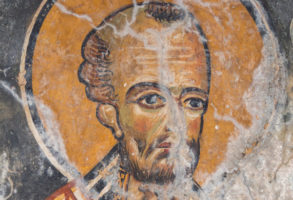Published March 23, 2015
Has the modern age seen a widespread decline in violence due to an awakening of western thought and culture in the 17th and 18th centuries? The author and neurobiologist Steven Pinker famously argued exactly that in his celebration of the Enlightment,The Better Angels of our Nature. Last week, in The Guardian, the author John Gray published a long article arguing that Pinker is wrong.
So, who’s right?
Here are the points I would make.
1. There has not so much been a decline in violence as a rise in squeamishness.
As evidence of our much lower threshold of tolerance for violence, Pinker points out that in the Middle Ages, cats would be burned alive for popular entertainment. He also points to Voltaire’s famous revulsion at the gruesome public torture of the would-be king-killer Jean-François Damiens, a hitherto standard procedure that so shocked the French elites that it was banned.
At the same time, it is hard to look at the horrors of the 20th century and not think that there is more to the story. A perhaps useful heuristic is evolutionary psychologist Jonathan Haidt’s Moral Foundations Theory which sets out five “foundations” for our moral world views. One of these is “care/harm” which makes us dislike the pain experienced by others. Typically, modern persons have much stronger “care/harm” feelings than people in more traditional societies, and within the West, progressives have stronger “care/harm” feelings than conservatives.
It’s easy to see how an increase in squeamishness would make many kinds of violence unacceptable — but how it would facilitate others. The special horrors of the 20th century mostly occurred at a remove from those most responsible for the killing. It’s easier to feel less squeamish when the regime’s victims are spirited away to gulags or concentration camps, or when incendiary or nuclear bombs can be dropped from 30,000 feet at the push of a button.
By and large, this increase in squeamishness is true and very good, but we should not confuse it with something it’s not, and we should be aware of how, even as it makes many kinds of violence less acceptable, it might make other kinds of violence easier to swallow. The “care/harm” creates good intentions, but good intentions alone are not enough.
2. If there is a decline in violence, it is due to Christianity.
By now, mainstream historians are slowly waking up to the realization that almost everything we like about the Enlightenment, from the rule of law to the scientific method to capitalism, had its roots in the extraordinary civilization of the Middle Ages.
Why is it that we modern persons are so much more squeamish, so much more likely to be stirred by the idea of harm?
One answer might be that our civilization had, for a millennium, at the center of its moral imagination, the battered and broken figure of a slave hanging from a gibbet, condemned to die by all rightful authorities and abandoned by his friends.
And it is worth noting that the increase in squeamishness in the West dates back from the takeover of the Roman Empire by Christianity.
A key indicator of cultural squeamishness is how a society treats children. As the historian O.M. Bakke shows in the tellingly-named book How Children Became People: The Birth of Childhood in Early Christianity, Pagan society considered children as little more than objects, with consequences of — to us post-Christians — astonishing cruelty. The practice of abandoning newborns was widespread and not frowned upon. While most abandoned infants died, those who did not were typically “rescued” into child sex slavery, which was a legal and thriving industry. The sources report that sex with castrated boys, in particular, was considered very titillating, and there are reports of babies castrated to serve that purpose. These were all practices that Christians famously condemned, and Bakke nicely traces how phrases by Jesus holding children up as examples and insisting on care for the “least of these” caused emerging civilization, for the first time in the history of the West, to regard children as full human beings endowed with rights.
Another good indicator of squeamishness is the treatment of slaves. While only by the High Middle Ages was slavery over in the West — the first time in all of human history that a culture had abolished slavery — as soon as Christianity became the state religion of the Roman Empire rafts of unprecedented laws were passed to reform the institution of slavery, typically “squeamish” laws such as banning sexual relations between slaves and masters, making it illegal to break up slave families, banning the branding of slaves (first on the face, and later anywhere). The first condemnation of slavery as an institution in all of recorded history was made by the Catholic bishop and Church Father Gregory of Nyssa, in strikingly “squeamish” terms, exhorting his congregation to see in their slaves the same image of God that dwells in them, and to free them.
Because human hearts are so hard and crooked, this rise in squeamishness was infuriatingly slow and incomplete (and still is), but if there is one starting point one could name, it would be the rise of Christianity. If the Enlightenment did anything, it was only to accelerate a process that had been ongoing for centuries.
3. The modern age doesn’t look so hot when you count abortion.
Abortion is a typical “squeamish” issue, where mere squeamishness leads us astray. It’s harder to get squeamish about a “clump of cells” than a live baby, even though there is no conceptual difference between the two. When it comes to disabled children in the womb, we all too often get squeamish in exactly the wrong way: we get squeamish about the pain they will endure, instead of getting squeamish about the idea of snuffing out innocent life. “Care/harm” makes us empathize more with those we recognize as our alter egos, but make us empathize less about those we do not include in our circle of fellowship.
According to the U.S. Abortion Clock there have been 55 million abortions in the United States since abortion was legalized in the U.S., and more than one billion abortions worldwide since 1980. One billion. If abortions are counted as homicides then the modern age sure doesn’t look so hot.
4. The dark side of the Enlightenment.
The one true sleight-of-hand practiced by Steven Pinker in his account of the decline of violence (which, as I have said, has a lot of truth) is that he tries to erase the inherently modern phenomenon of totalitarianism from the legacy of the Enlightenment, so that they don’t get put on the Enlightenment’s balance sheet.
But totalitarianism is an inherently modern phenomenon that would have been impossible without the Enlightenment. Late 18th century French society got squeamish about the public torture of Jean-François Damiens — and just a few decades later, they used the hygienic innovation of the guillotine to murder people in the name of Enlightenment values on a scale that would have been unthinkable in the Ancien Régime. Communism was inherently a modern phenomenon: atheistic, pseudo-scientific, and pseudo-rationalistic, driven by a post-Christian and “squeamish” concern for the fates of the working poor, universal in scope and ambition. And while Nazism got mileage out of reactionary rhetoric, it is also inseparable from roots in the movements of “scientific racism” and eugenics which argued for treating human genetics as a kind of technology and fixing it (with the power of the state if need be).
I make this point because I am a person who believes the Enlightenment is a very good thing, but that it also has its dark side. The modern age included a laudable squeamishness against tyranny, but it also included a nice dose of utopian hubris, and the special horrors of the modern age are incomprehensible without this Enlightenment idea. The Enlightenment is a glorious thing, but it is also a dangerous thing — it must always be rescued from itself. The first way to do it is to refuse to whitewash its true legacy.
— Pascal-Emmanuel Gobry is a fellow at the Ethics and Public Policy Center.








